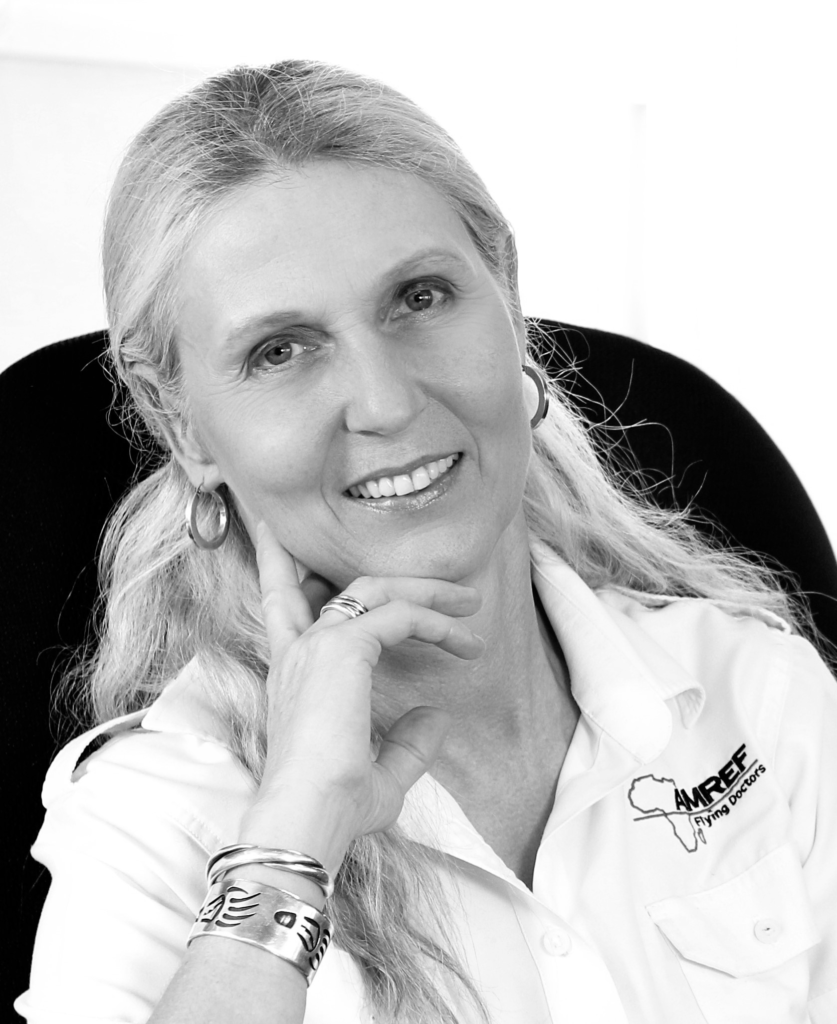
In the latest ITIC Industry Insights interview, we spoke with Bettina Vadera, consulting Chief Medical Advisor, for AMREF Flying Doctors and long-standing ITIC committee member, who shared how operations have adapted to travel restrictions and how coronavirus is impacting the wider community in Kenya
At a time when connecting face-to-face isn’t as simple as we are used to, we have been taking the opportunity to catch up with members of our ITIC community, to find out how they are navigating the current crisis. You can read our previous interviews with Eva Kluge, Dexter Tan and Carlos Salinas.
Hello, my name is Bettina Vadera, I’m a medical doctor by profession. I have been working for AMREF Flying Doctors, an ambulance company based in Nairobi, Kenya, for the last 21 years as a flight physician, and for the last eight years as the Chief Executive and Medical Director.
Q: How has the coronavirus pandemic impacted your products and services to date?
AMREF Flying Doctors has obviously, as a company, been affected by Covid. Initially, business really went down, flights went down until such time that AMREF Flying Doctors found good co-operation, collaboration agreements with the Ministry of Foreign Affairs and the Ministry of Health to waiver the quarantine requirements for aircrew and medical crew that initially were mandatory for everybody. Also, to make it possible to allow non-Kenyan patients into the country for treatment, which now is possible, provided AMREF Flying Doctors is able to get a Covid test from these patients before they come. So a number of restrictions have been waiveerd and and with that, it’s become easier for AMREF Flying Doctors to carry out their work of patient evacuations.
AMREF has recently invested into two [patient] isolation transport units. And this enables the company to provide evacuations to Covid-19 positive patients, which has been a big development. The company has already received a number of requests. And I think this will add onto being valuable in times like this as an ambulance provider, as well as helping the business to continue doing their work. And as of May, it looks as if general flying for AMREF Flying Doctors has almost bounced back to where it was before.
Q: What are the major issues pertaining to your country as a result of the virus?
Where we are at in Kenya at the moment is we have about 800 positive confirmed cases of Covid-19 in the country; about 50 deaths have been reported. Thirty per cent of them occurred at home, which is interesting.
We are living with similar restrictions like other countries have experienced: we have the general travel restrictions, and we have a suspension of international flights. There is general closure of schools and other places of mass gatherings. We have the mandatory requirement to wear a face mask in all public places. And we have a curfew that happens from 7 p.m. to 5 a.m. every day, and this has just been extended to the 6th of June. There’s also a succession of movement between counties. And recently, the government also insisted on a succession of movement between certain districts in Nairobi where Covid-19 clusters have been detected.
I think I can say for privileged or middle-class families or communities, I think all these restrictions are easy to adhere by. But if we are looking at slum areas in cities like Nairobi, where people live very, very close together and under quite difficult circumstances, things like social distancing is almost impossible. Water is very precious and scarce in the slums, so the directive of hand washing is a nice idea, but practically, again, a huge challenge and almost impossible at times.
Face masks is another problem in these areas because they are expensive if they are disposable, and if they are reusable, they are only really effective if you wash them regularly and if they are made out of good material, appropriate material. So, this I think is a particular Kenyan – or African – challenge. And in my view, the government is not doing enough to really address these problems. Another problem is the small and medium-sized businesses going out of business or laying off staff, which again, you know, hits the already impoverished communities the hardest.
Q: What do you think the future of the travel insurance industry will look like?
Obviously, travel is pretty much dead at the moment, but I’m convinced it will bounce back. I think people will always want to visit exotic places and experience holidays away from home.
But one change that I could see that will remain after Covid is that people may consider their [mode of] transport when they travel and not go for air travel, which will obviously become more expensive. And I think people may look to travel to destinations closer to home and possibly these long-distance vacations away from home they may become less [common], which, in the overall times of climate change, may not be a bad thing.
Q: What should be the focus of travel insurance companies in the immediate present?
A recommendation to the travel industry, [and] insurance companies could be to review their policies in regards to restrictions and add Covid into the cover and maybe even to review if there are possibilities to offer special insurance cover to destinations that are known to have less of a travel or health risk, to encourage travel and to play a role in helping the industry get back on its feet.
Q: Looking ahead to a time when we can meet face-to-face once again, can you tell us what you enjoy most about the International Travel & Health Insurance Conferences?
I think ITIC really provides a very special and important platform for our industry to be able to meet in person, to be able to professionally discuss problems and find solutions. Whether this is in sessions or whether this is a form of networking.
And over and above that, I think I can only say for myself, I’ve been attending these conferences for the last 20 years and quite a number of business colleagues and business partners have actually become personal friends of mine, so I look forward during ITIC conferences to meeting them, to have fun, to do something together and catch up. So for me, ITIC does provide a good platform professionally by bringing all of us together. But also personally, it’s always been really fun and nice and something to look forward to. So I hope Madrid is going to go ahead and we’ll be able to meet there.
In the meantime, I wish everybody all the best. Stay safe until we meet again. Thank you from Nairobi, and bye!

Bettina Vadera – Chief Executive & Medical Director, AMREF Flying Doctors
Stay connected and join our conversation
